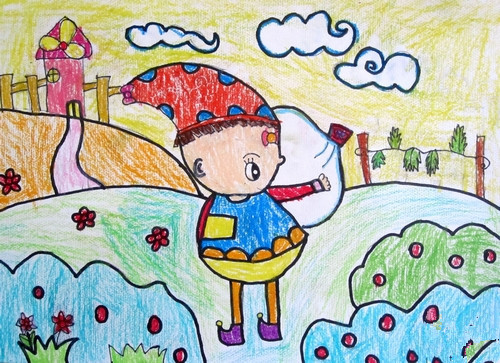
练习写英语作文的题目【一】
考辅P42
1.IgaveTomthebook.//
2.Heboughthismothersomeflowers.//
3.Thebridgewasbuiltbyworkerslastyear.//
4.Wehavetofinishtheworktoday.//5.Hewilldohishomeworktomorrow.//
6.Wecleantheroomseveryday.//7.Thewriterspent3yearsonthebook.//
8.Itisabookwithalotofbeautifulpictures.//
9.Thebooksoldverywellduringthefirstweek.//firstweek.
10.Marywastheonlyoneintheoffice.//
11.Shefinishedherworkat10o’clock.//Shedidn’12.Shehadtotakeataxihomebecauseitwastoolate.
13.LizaandMikearrivedattheGreatWallintwohours.
14.Theywerehappytogettothetop.//
15.TheyenjoyedthemselvesontheGreatWall.//
16.ThepostmansentSusanandTommyapaperbox.
17.Theyopeneditandfoundapresentfromtheirfriend.
18.Theybothlikedthepresentandfeltveryhappy.
19.Alicedidn’tfeelwelltoday,soshewenttothehospital.
20.Thedoctoraskedhersomequestions.//
21.Thedoctordidn’tgiveheranymedicineintheend.
(全真1)
1.ThecapitalAirporthasbeeninusefor20years.//
2.ThecapitalAirportisthelargestoneinChina.//
3.Ihavenevertakenaplane.MyfriendLiPing,either.//
(全真2)
1.Fathergave$20formetobuysomebooks.//
2.IwasexcitedwhenIsawsomanygoodbooksinthebookstore.
3.ButsomebookswouldcostmorethanIhave.//
ButIdidn’//(全真3)
1.ManyChinesefriendswenttotheparty.2.Tonywasgivenalotofpresentsbyhisfriends.//Tony’
3.SeeinghisChineseteacheratthepartymadeTonyveryhappy.//(全真4)
1.Iwanttoeatsomething.//2.Therefrigeratorisempty.//3.Bobspentfifteenyuanonthehamburger.///(全真5)
1.Mr.Wangdoesn’tworkinthatfactoryanylonger.//
2.Mr.Wanglefthomeearlierinordertocatchthebus.3.Mr.Wangfindsitnoteasytogetalongwiththatyoungguy.//(专家1)
1.Manypeoplewentshoppingyesterday.
2.Janespent4hourstobuyNewyeargifts.//
3.Shewassotiredthatshecouldn’twalkanylonger.//
(专家2)
1.Myfriendssaidtome,“Areyoufree?”
2.Shewantedmetogoshoppingwithher.
3.Shethinksitapleasuretogoshoppingwithafriend.
练习写英语作文的题目【二】
Therearesomecherriesinthebasket.(一般疑问句,否定回答划线部分提问Kittylikesthebluedress.(用thepinkdress改为选择疑问句Don`tplaywithfires.(换一种说法
Joelikesreading.Dannylikesreadingtoo.(把两句连成一句Pleaseeatsomecakesandbiscuits.(改为否定句划线部分提问Thereissomewaterintheglass.(划线部分提问划线部分提问Whatdayistoday?
What`sthedatetoday?
Whatdoyouusuallydoafterdinner?
Whichpearsdoyouwant,thegreenonesortheyellownoes?Whichwesternholidaydoyoulikebest?Whenisit?
WhatdoyoudoattheLanternFestival?
5B2
Thosebooksareours.(同义句划线部分提问划线部分提问
ThosecrayonsareDanny`s.(.(用Alice改为选择疑问句Arethesetheirschoolbags?(单数句划线部分提问
Theyridetheirbicyclestothepark.(用May改写
Thecocooniswhite.(用browng改为选择问句划线部分提问Heisfouryearsold.(改为一般过去时
Iwasathomeyesterdayevening.(改为一般疑问句
Thecaterpillarslikeeatingleaves.(改为单数句划线部分提问划线部分提问
WhatdoyoueatattheMid-autumnFestival?(根据实际情况回答
练习写英语作文的题目【三】
1. Nancy is too young to dress herself.
Nancy is not _____ _____ to dress herself.
2. My watch doesn't work well.
There is ____ _____ _______ my watch.
3. Jane doesn't go to work by bus any longer.
Jane ____ _____ _____ to work by bus.
4. It took Mary two weeks to prepare for the exam.
Mary _____two weeks____ ______ for the exam.
5. It seems that they have known each other.
They seem to _____ _____ each other.
6. "My grandpa doesn't like coffee or coke" said Bob
Bob said that _____grandpa liked _____coffee _____coke.
7. Cao Fei joined the League three years ago.
Cao Fei _____ ____ _____ the League for three years.
8. I prefer walking there to going by bus.
I prefer to walk there ____ _____ going by bus.
9. -Thank you very much. -You're welcome.
- ____ a lot. -Not at____ .
10. Kitty does well in English.
Kitty ____ ____ ____ English.
11. They realized Hainan was a beautiful place after they reached there.
They____ realize Hainan was a beautiful place_____ they reached there.
12. We will have to finish the work hardly if you don't help us. We can't finish the work _____ _____ ______
13. My dictionary isn't so thick as yours.
My dictionary is _____ than yours.
14. Could you tell me where the East Street Hospital is? Excuse me, ____ is the _____ to the East Street Hospital?
15. The book is exciting to read.
It is ____ _____ read the book.
16. Jack's mother asked him, "Have you packed your things?" Jack's mother asked him ____ he ____ packed his things.
17. She likes singing better than dancing. She ____ singing ____ dancing.
18. Remember to ring me up as soon as you get to Nanjing Make ____ to give me a ring as soon as you _____ Nanjing.
19. They couldn't catch the train because of the heavy traffic. The heital?
15. The book is exciting to read.
It is ____ _____ read the book.
16. Jack's mother asked him, "Have you packed your things?" Jack's mother asked him ____ he ____ packed his things.
17. She likes singing better than dancing. She ____ singing ____ dancing.
18. Remember to ring me up as soon as you get to Nanjing Make ____ to give me a ring as soon as you _____ Nanjing.
19. They couldn't catch the train because of the heavy traffic. The heavy traffic _____ them from _____ the train.
20. My brother has been away from home for two days.
My brother _____ home two days _____ .
21. Li Lei decided to move to Canada when he was thirty.
Li Lei made a _____ to move to Canada at the _____ of thirty.
22. Jim was too careless to pass the exam last term.
Jim was not_____ _____ to pass the exam last term.
23. If you don't hurry up, you can't catch the train.
Hurry up, _____ you may _____ the train.
24. Yang Li wei said to us, "I'm going to visit your school tomorrow. " We were all pleased.
We were all pleased when we heard Yang Li wei_____ visit_____ school the next day.
25. This is the most interesting film I have ever seen. I have ____seen _____ an interesting film before.
26. I was late for school because of the traffic accident. The traffic accident _____ me _____ getting to school on time.
练习写英语作文的题目【四】
(一)改写一般疑问句:
(1)原句中有be动词的,将be动词提前,其他顺序不变。
例如:Thisisacat.变为Isthisacat?
(2)原句中有情态动词的(can/may/shall/would)将情态动词提前,其他顺序不变。例如:Hewouldlikeapie.变为Wouldhelikeapie?
(3)原句中是一般动词的,在句首加助动词do或dose(用于主语是第三人称动词单数的句子),其他顺序不变。例如:Iplaytheguitar.变为Doyouplaytheguitar.
(4)原句中的some变any。
注:以情态动词开头的一般疑问句,并且要求对方做肯定回答的`some不变。
(5)原句中的第一人称改为第二人称。例如:Iamanurse.变为Areyouanurse?
(6)以dose开头的一般疑问句,原来动词的第三人称单数形式要变回原形。例如:Hereadsastorybook.变为Dosehereadastorybook?
(二)改写否定句:
(1)原句中有be动词的,直接在be动词后面加not。例如:Itisadog.→It’snotadog./Itisn’tadog.
(2)原句中有情态动词的,直接在情态动词后加not。
例如:Iwouldlikeahotdog.→Iwouldnotlikeahotdog.
(3)原句中是一般动词的,在一般动词前加don’t或doesn’t(用于主语是第三人称单数的句子),doesn’t后面用原型。例如:Iseethreehamburgers.→Idon’tseethreehamburgers.
原句中的some变any例如:Ihavesomebreadan
dmilk.→Idon’thaveanybreadandmilk.
(4)以let开头的祈使句,如果是letus或letme,直接在其后加not;如果let后面其他人称代词宾格(you、him、her、them、it)就在let后面加助动词don’t。例如:Letusgotothepark.→Letusnotgotothepark.再如:Letthemdohomework.→Don’tletthemdohomework.
(三)对划线部分提问:
对划线部分提问,就是先把一个陈述句的划线部分去掉,然后变为一个特殊疑问句:一是特殊疑问句+一般疑问句;
二是特殊疑问句+陈述句(对主语或主语的定语提问,therebe结构除外)
⑴划线部分是人,用who提问。
⑴划线部分是主语,用who提问,who后面的动词要用第三人称单数形式。如:Whois;Wholikes;Whohas?
方法:who+原句的剩余部分
例如:①HelenandMikearelisteningtomusic.
→Whoislisteningtomusic?
②Ihavesomemodelplanes.
→Whohasanymodelplanes?
⑵划线部分是表语,用who提问。
方法:Who+剩余部分的一般疑问句形式
⑵划线部分是事或者物,用what提问。
方法:what+剩余部分的一般疑问句形式。
注:如果原句是therebe句型,直接用What’s+地点状语来提问。例如:①Wewouldliketobuysomethingsforaparty.
→Whatwouldyouliketobuyforaparty?
②Therearealotofcakesintheplate.
→Whatisintheplate?
⑶划线部分是物主代词或名词所有格,用Whose提问。
方法:⑴划线部分是主语的定语时,Whose+剩余部分
例如:Ourclassroomisbright.
→Whoseclassroomisbright?
⑵划线部分是表语或表语的定语时,Whose+剩余部分的一般疑问句形式例如:①ThewomanisSuYang’steacher.
→Whoseteacheristhewoman?
注:对某部分的定语提问,被修饰的部分跟随特殊疑问句往前提②ThispurseisYangLing’s.
→Whosepurseisthis?
⑷划线部分是地点,用where提问。
方法:where+剩余部分的一般疑问句形式
例如:TheyarehamingaMathslessonintheclassroom..
→WherearetheyhavingaMathslesson?
⑸划线部分是“多少”,用howmany或howmuch提问。
方法:⑴句中是可数名词的用Howmany+剩余部分的一般疑问句形式例如:Therearefifteentreesintheplayground.
→Howmanytreesarethereintheplayground?
⑵句中是不可数名词的用Howmuch+剩余部分的一般疑问句形式例如:Ihaveaglassofjuiceforbreakfast.
→Howmuchjuicedoyouhaveforbreakfast?
⑹划线部分是时间,用when或whattime(具体的几时几分)提问。方法:⑴when+剩余部分的一般疑问句形式
例如:SuYangandSuHaiareathomeonSundaymorning.
→WhenareSuYangandSuHaiathome?
⑵问具体的时间直接用Whattimeisit?或What’sthetime?问
例如:It’sthreeforty-five.
→Whattimeisit?或What’sthetime?
练习写英语作文的题目【五】
①常常能听到这样一种说法:人的脑子用多了,会死掉许多细胞、人脑多用了会笨,这种说法是没有科学道理的。
②事实上,人的肌体的各个部位,几乎都是越用越健康,脑子也是一样。让我们先来看一个数据:经科学家研究证明,人的大脑皮层,大约有140亿个神经细胞,也叫神经元。这么多数量的脑细胞,对一个人的一生来说,足够足够了。有人计算过,如果一个人活到100岁的话,经常运用的脑神经细胞只不过10多亿个,还有80%90%的脑细胞没动用。所以,根本不会有什么脑子多用会笨的事情。
③生命在于运动,这是生物界的\'一个普遍规律。人的机体,用则灵,不用则衰;脑子用得勤的人,肯定聪明。因为这些勤于用脑的人,脑血管经常处于舒展的状态,脑神经细胞会得到很好的保养,从而使大脑更加发达,避免了大脑的早衰。相反,那些懒于用脑思考的人,由于大脑受到的信息刺激比较少,甚至没有,大脑很可能就会早衰。这跟一架机器一样,搁在那里不用就要生锈,经常运转就很润滑。外国就有过这样的研究,科学家观察了一定数量的2070岁的人,发现长期从事脑力劳动的人,到了60岁时仍能保持敏捷的思维能力,而在那些终日无所事事、得过且过的懒人当中,大脑早衰者的比例大大高于前者。
④除了懂得脑子多用只会聪明、不会笨的道理以外,我们还应该了解多用脑、可防老的道理。这对老年人来讲尤为重要。我们常说,大脑是人体的司令部,如果大脑迟钝了,身体各器官的生理功能当然也不会旺盛。所以,保持大脑的活力,就能促进其他机体、器官保持活力;大脑如早衰,也会影响其他机体器官的早衰。老年人的健康状况,往往是生理、心理、环境等因素互相影响的结果,老年人保持着勤于用脑的好习惯,就会有一种很好的心理状态,可以使自己的生活、精神充满活力。
⑤勤于用脑,延缓衰老,这个道理是很科学的。老年人如此,何况我们青少年呢?让我们大家养成勤于用脑的良好习惯吧。
18.用自己的话对第②段中画线部分的内容进行概括。(1分)
___________________________________________________________________
19.第③段中画线的部分综合运用了______________________________等说明方法,说明了____________________________________________________的道理。(2分)
20.第④段说明多用脑,可防老的道理,谈了两方面的原因:一是生理方面的,就是多用脑能够____________________________________________;二是心理方面的,就是多用脑可以___________________________________________。(2分)
21.人的机体的各个部位,几乎都是越用越健康,这句话中的几乎能删去吗?为什么?(2分)
_____________________________________________________________________
22.把全文分为两个部分,请用‖划出。(1分)
① ② ③ ④ ⑤
23.你在生活中也经常用脑,读了这篇文章,有些什么?(2分)
_______________________________________________________________ ____
参考答案:
18.人的脑神经细胞足够一生运用。 19.作诠释、作比较、打比方。脑子用得勤(的人),肯定聪明。或:脑子多用只会聪明(不会笨)。20.促进其它肌体、器官保持活力; 使生活、精神充满活力。 21.不能删去。几乎表明并非全部,也有例外,删去后不能表达出这层意思。 22.①②③║④⑤ 23.本题鼓励学生各抒己见,只要符合题意,言之成理即可给分。











